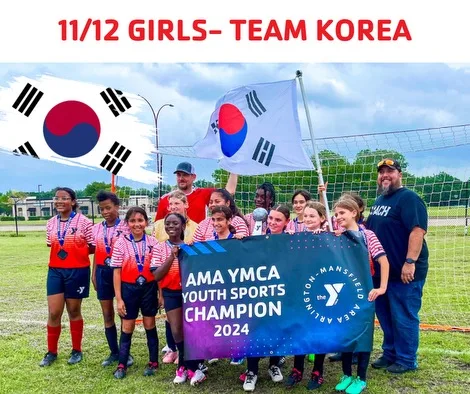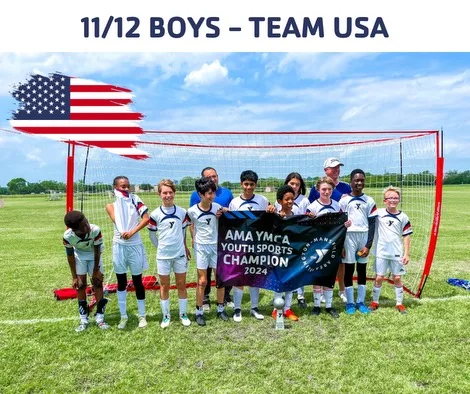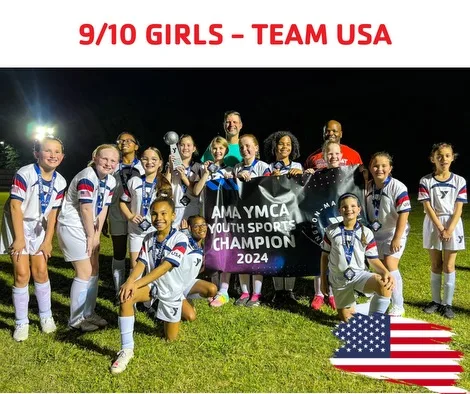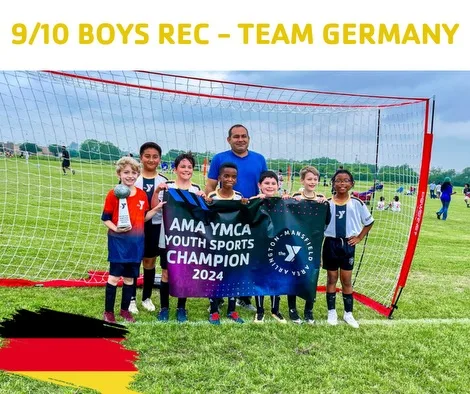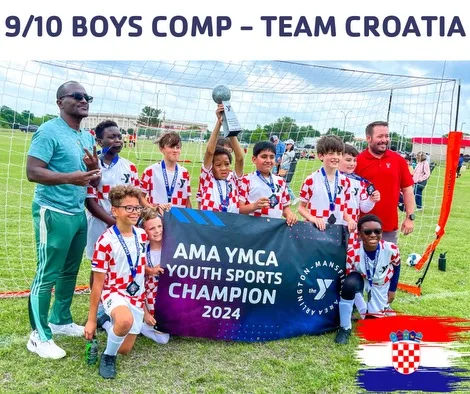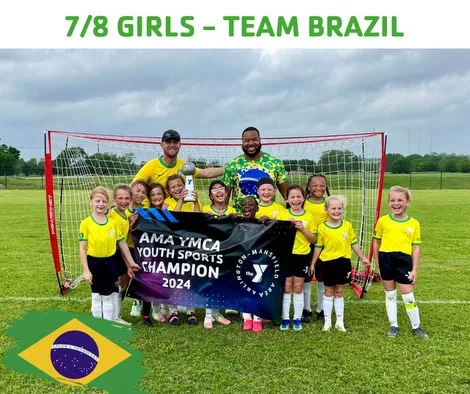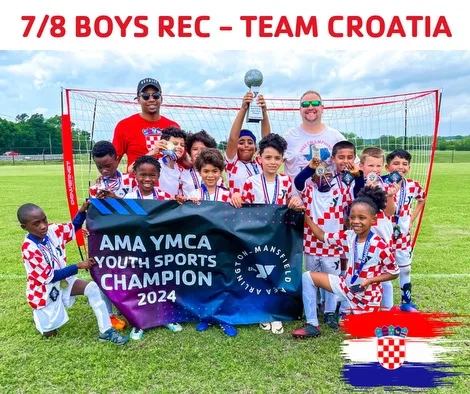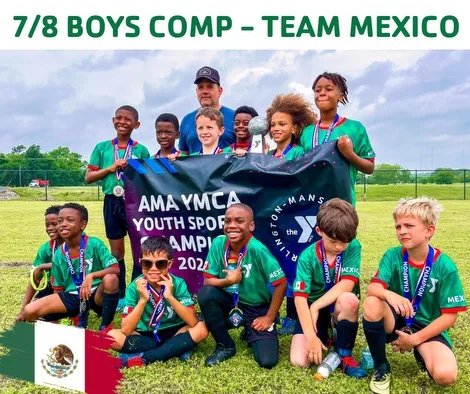The YMCA Soccer program has a new look! Played in over 200 countries and territories, Soccer or “Football” is considered the world’s most popular sport. With the FIFA World Cup™ coming to Arlington, Texas in 2026, the AMA YMCA is changing its look to an International-Themed Soccer League. Kids will have the opportunity to play on national teams like Vietnam, Germany, and Brazil sporting exclusive World Cup-style uniforms. Additionally, families will learn about the countries their teams represent and its’ influence in our local community.
Practices & Games
Fall League
Ages: 3-12[3-6 – Recreational | 7/8 and older – Recreational and Competitive Divisions available]
Member Priority Registration Begins: July 1
Non-Member Registration Begins: July 8
Registration Ends: July 25
Late Registration Begins: July 26 – July 31 ($10 late fee applies)
Practices Begin: Week of August 26
Season Begins: September 9
Season Dates: 9/7, 9/14, 9/21, 9/28, 10/5, 10/12
Season Break: September 2 (Labor Day)
Rain-Out/Make-Up Date(s): October 19
Cost: Included Program for Members*
Non-Member: $149
Fees include a World-Cup style jersey
*A $49 Member Supply Fee
Volunteer Coaching Opportunities
We’re seeking volunteers interested in coaching youth sports. Our coaches make YMCA youth sports possible and create a lifelong impact on children by encouraging participation and emphasizing sportsmanship and strong character.
When you become a volunteer, the Y will introduce you to coaching and provide resources specific to the sport you coach. If your child is a player, getting involved at their practices can help them feel comfortable to practice with you outside of official practice time.
Soccer Tips
The goal of becoming a top athlete is a long road for anyone to achieve. Many factors go into developing soccer players that compete at the highest level but a key aspect can start with simple everyday habits as a child. Everyone shines in their own way, at their own time. That’s the beauty of soccer; it builds people for whatever comes next in life.
Training Tips
Practice makes perfect! That begins with a good warmup to focus training players to get as many touches on the soccer ball and increase their heart rate to help prepare them for practice and soccer clinics with technical activity, creating an environment where players can get as much repetition of a skill as possible. The more a player practices, the better they’ll get!
Coaching Tips
Coaches who engage in active listening guarantees clear, mutually understood communication makes players more willing to talk to the coach as well as promotes a more meaningful relationship between the coach and player. Communicating with purpose by being aware of posture, eye contact, facial expressions, distance between the coach and the player, distracting behaviors and voice quality is crucial in addressing players and understanding their questions and quandaries.


